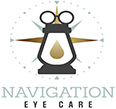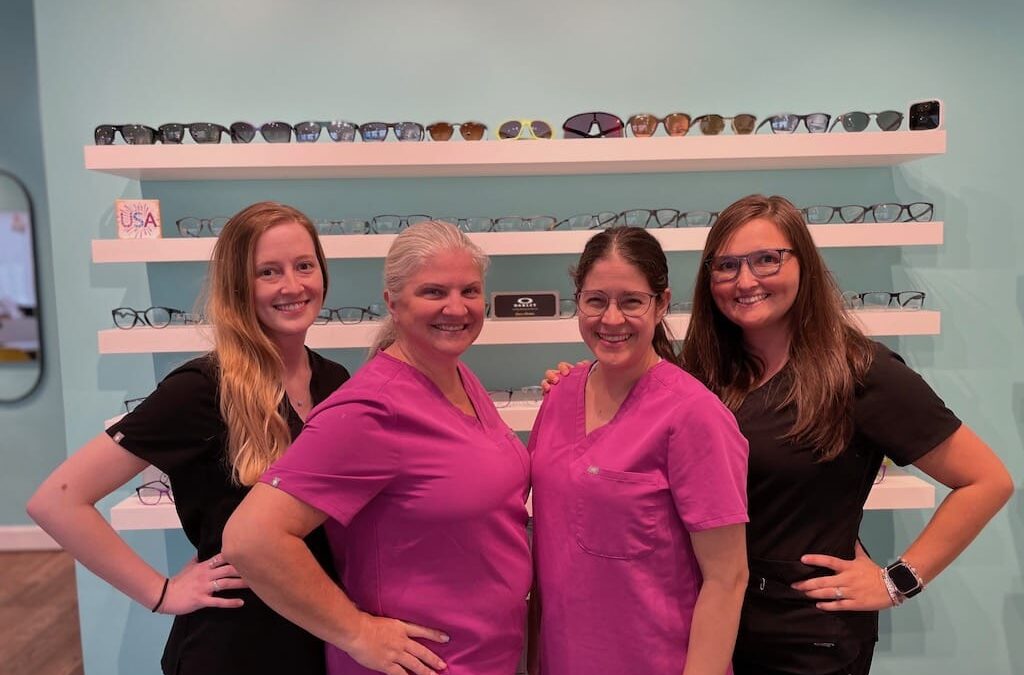Blink, Play, Learn: Vision Exercises for Children’s Eye Health
When it comes to our children’s health, we often think about their physical well-being and nutrition. However, one crucial aspect that may sometimes be overlooked is their vision. Good vision is essential for a child’s learning and development, and there are simple but effective vision exercises that can help improve their eye health. In this article, we’ll explore some of these exercises and the role of Navigation Eye Care’s Optometrist Chesapeake VA in ensuring your child’s vision is at its best.
Why Are Vision Exercises Important for Children?
Vision exercises are not only beneficial for maintaining healthy eyes but also for enhancing a child’s visual skills. They can help with:
- Eye Coordination: The ability of both eyes to work together effectively.
- Focus: The capability to maintain clear vision at various distances.
- Tracking: The capacity to follow objects smoothly and accurately.
- Visual Perception: The brain’s ability to interpret and make sense of visual information.
Exercise 1: Blink Breaks
In today’s digital age, children are spending more time in front of screens than ever before. Extended screen time can lead to digital eye strain, which may cause symptoms like eye fatigue and headaches. To combat this, encourage your child to take “blink breaks” when using screens. Every 20 minutes, have them blink rapidly for 20 seconds. This simple exercise helps moisten the eyes and reduce strain.
Exercise 2: The Near-Far Focus Game
This game can be a fun way to improve your child’s focusing abilities. Start by placing two objects at different distances from your child—one nearby and one farther away. Have them switch their focus between the two objects, ensuring both remain clear. This exercise trains the eyes to adjust between near and far vision.
Exercise 3: Eye Tracking with a Maze
Create a simple maze on a piece of paper. Ask your child to follow the path of the maze with their finger while keeping their eyes on the tip of their finger. This exercise enhances their tracking skills, helping with reading and following lines of text.
The Role of a Pediatric Eye Doctor
While these vision exercises can contribute to better eye health, it’s essential to consult with Navigation Eye Care’s Optometrist Chesapeake VA for comprehensive eye exams. She can detect any underlying vision issues that may require professional intervention. Regular check-ups are essential to ensure your child’s vision is on the right track.
Healthy Habits for Good Vision
In addition to vision exercises and eye exams, there are other healthy habits that can promote good vision in children:
- Balanced Diet: Encourage your child to eat foods rich in eye-friendly nutrients, such as carrots, spinach, and fish.
- Adequate Sleep: Ensure your child gets enough sleep, as rest is crucial for maintaining healthy eyes.
- Limit Screen Time: Set reasonable limits on screen time and encourage outdoor play.
- Proper Lighting: Ensure that your child reads or works in well-lit areas to reduce eye strain.
Nurturing Healthy Eyes for a Bright Future
Incorporating vision exercises into your child’s daily routine can be both fun and beneficial. However, these exercises should complement, not replace, regular visits to an optometrist. Navigation Eye Care’s Optometrist Chesapeake VA plays a pivotal role in monitoring your child’s eye health and addressing any concerns that may arise. By prioritizing your child’s vision, you’re helping to pave the way for a bright and successful future.
Eyes on the Prize: How Vision Therapy Enhances Athletic Performance
When we think about athletic performance, we often focus on physical strength, endurance, and skill. However, there’s an essential component that can significantly impact an athlete’s ability to excel: vision. Navigation Eye Care’s Optometrist Chesapeake VA ability to enhance an athlete’s visual skills through vision therapy is often underestimated. In this article, we’ll explore how vision therapy can give athletes a competitive edge and help them reach their full potential.
The Connection Between Vision and Sports Performance
Visual skills are crucial in almost every sport, from soccer and basketball to golf and archery. Here are some key visual aspects that can affect an athlete’s performance:
- Visual Acuity: The ability to see clearly at various distances is essential for recognizing and tracking objects on the field or court.
- Depth Perception: Accurate depth perception helps athletes judge distances, which is vital for activities like catching a ball or making precise shots.
- Eye-Hand Coordination: Quick and precise coordination between the eyes and hands is crucial for catching, throwing, and shooting.
- Peripheral Vision: Being aware of the entire playing field and what’s happening around you is essential in team sports.
- Visual Processing Speed: The ability to process visual information rapidly can be a game-changer, allowing athletes to react more quickly to changing situations.
How Vision Therapy Works
Vision therapy is a personalized, non-surgical program conducted under the supervision of a trained optometrist. It involves a series of exercises and activities designed to improve specific visual skills. Here’s how it can enhance athletic performance:
- Eye-Tracking Exercises: Athletes can improve their ability to follow fast-moving objects, like a soccer ball or tennis ball, by practicing eye-tracking exercises. This helps with reaction time and accuracy.
- Hand-Eye Coordination: Vision therapy can include activities that enhance hand-eye coordination, such as juggling or catching objects of different sizes and shapes. This is particularly valuable in sports like baseball and basketball.
- Visual Memory Training: Developing a strong visual memory can help athletes remember plays, strategies, and opponents’ movements more effectively.
- Depth Perception Enhancement: Exercises that challenge depth perception can improve an athlete’s ability to judge distances accurately, essential in sports like golf and archery.
The Benefits for Athletes
Vision therapy isn’t just about treating vision problems; it’s about optimizing visual skills for peak performance. Athletes who undergo vision therapy can experience several benefits:
- Improved Accuracy: Enhanced visual skills lead to more accurate shots, passes, and throws.
- Quicker Reaction Time: Athletes can react faster to changing game situations, giving them a competitive edge.
- Reduced Fatigue: Efficient visual skills mean less eye strain and fatigue during games, reducing the risk of mistakes late in a match.
- Increased Confidence: Knowing that their visual skills are finely tuned can boost an athlete’s confidence, which is crucial in high-pressure situations.
Consulting Navigation Eye Care’s Optometrist Chesapeake VA
If you’re an athlete or have a budding sports star in your family, consider consulting Navigation Eye Care’s Optometrist Chesapeake VA and her team whom specializes in sports vision. They can assess your visual skills and recommend a personalized vision therapy program. Whether you’re an aspiring professional athlete or simply enjoy sports as a hobby, vision therapy can help you reach your full potential and keep your eyes on the prize.

